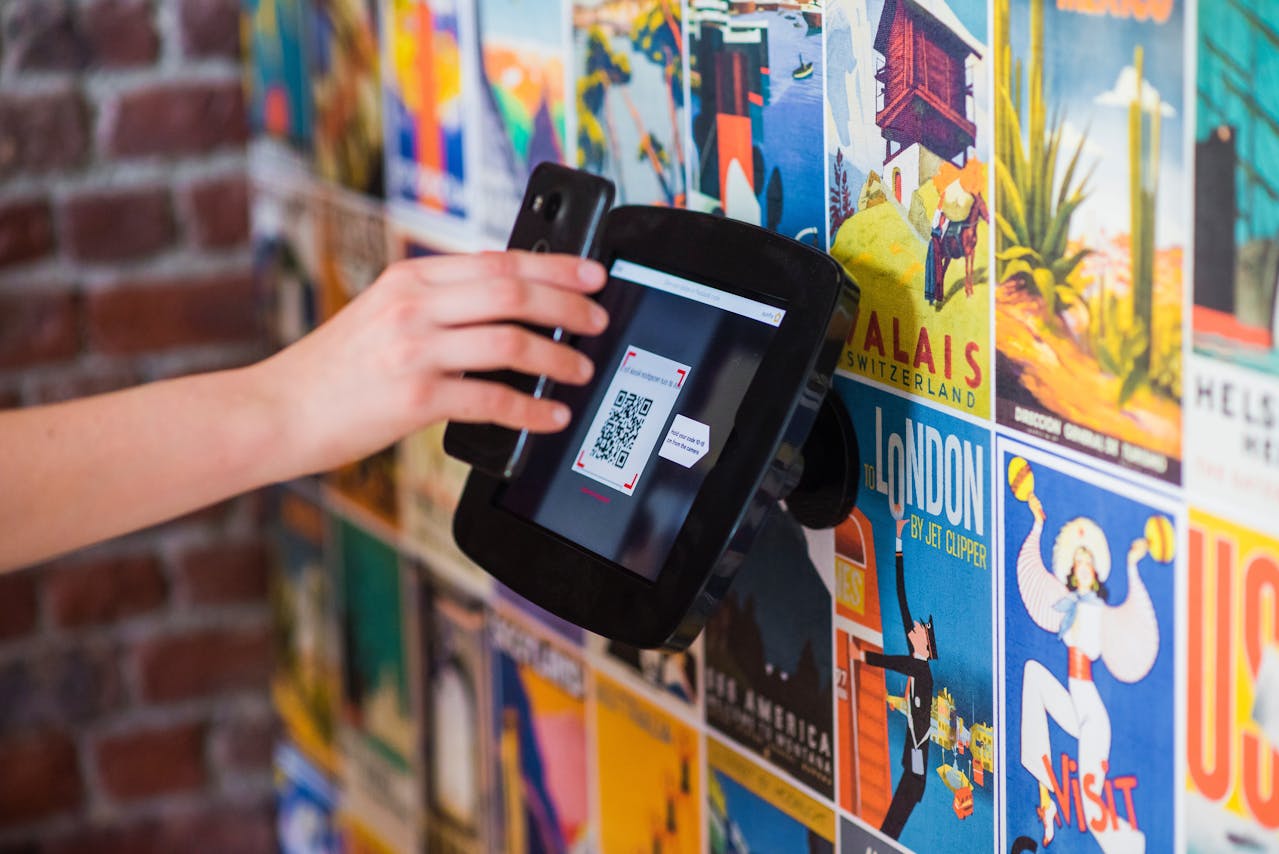
By Bella Zhang December 31, 2024
Operating a mobile bakery can be a great endeavor, yet it also presents distinct challenges—one of which is effectively handling mobile transactions. Regardless of whether you’re offering freshly baked goods at a farmers’ market or providing catering at an outdoor event, having a dependable mobile payment system is essential for seamless operations. This guide will assist you in exploring the choices and choosing the most suitable solution for your business.
Understanding Mobile Payment Processors
A mobile payment processor is a system that allows businesses to accept payments through mobile devices. For bakeries on the go, these systems are indispensable, as they provide the flexibility to handle contactless payments from anywhere. With customers increasingly preferring digital wallets like Apple Pay, Google Pay, and contactless credit cards, adopting mobile transactions is no longer optional—it’s a necessity.
Mobile payment processors usually consist of a POS system, a card reader, and software to handle transactions. Numerous solutions also provide extra functionalities, including inventory oversight, sales monitoring, and customer insights. The ideal system for your bakery must match your operational requirements while providing an easy-to-use experience for your customers.
When evaluating mobile payment processors, consider factors such as transaction fees, ease of use, hardware compatibility, and integration with other business tools. For example, if you run promotions or loyalty programs, you’ll want a system that seamlessly integrates these features. By choosing a robust solution, you can enhance your customer’s experience while streamlining your sales processes.
Why Mobile Payment Processors Matter for Bakeries on the Go
Bakeries on the go thrive on mobility and convenience, and your payment system should reflect this ethos. Traditional cash registers are not practical for outdoor markets, food trucks, or pop-up events. Mobile payment processors solve this problem by offering compact, portable solutions that can handle a variety of payment methods.
One significant advantage of mobile payment processors is their ability to accept contactless payments. In today’s fast-paced world, customers value speed and convenience. Whether they’re purchasing a croissant on their lunch break or ordering a custom cake for delivery, they expect a hassle-free checkout process. Mobile transactions enable you to meet this demand while minimizing cash handling and reducing errors.
In addition, mobile payment processors can assist you in expanding your customer reach. A lot of individuals opt for cards or digital wallets instead of cash, and not catering to these choices might result in missed sales opportunities. Furthermore, these systems offer important data insights, including optimal selling periods and customer preferences, which can guide your business choices.
Incorporating a mobile payment processor into your bakery operations isn’t just about keeping up with trends—it’s about future-proofing your business. As the payment landscape continues to evolve, staying ahead of the curve ensures your bakery remains competitive and relevant.

Features to Look for in a Mobile Payment Processor
When selecting a mobile payment processor for your bakery on the go, prioritize features that align with your business needs. Here are some key attributes to consider:
Ease of Use: A user-friendly interface is essential, especially when you’re juggling multiple tasks. The system should allow you to process payments quickly and effortlessly.
Compatibility: Make sure the processor works with your devices, regardless of whether you’re using a smartphone, tablet, or specialized POS equipment. Certain systems also facilitate offline transactions, which can be a miracle in regions with unreliable internet access.
Payment Methods: Opt for a processor that accepts a wide range of payment options, including credit and debit cards, contactless payments, and digital wallets. This versatility ensures you’re catering to all customer preferences.
Transaction Fees: Understand the costs involved, including per-transaction fees, monthly subscriptions, and hardware expenses. Compare different providers to find a solution that fits your budget.
Additional Features: Numerous mobile payment processors provide additional features, including inventory management, sales analysis, and integration of loyalty programs. These characteristics can enhance the value of your operations considerably.
Customer Support: Reliable customer service is crucial, especially if you encounter technical issues during peak selling hours. Look for providers with responsive support channels.
By focusing on these features, you can find a mobile payment processor that not only meets your needs but also enhances your bakery’s overall efficiency.
Popular Mobile Payment Processors for Bakeries on the Go
With numerous options available, choosing the right mobile payment processor can be overwhelming. Here are some popular providers to consider:
Square: Known for its simplicity and versatility, Square offers a range of solutions for small businesses. Its free POS app and affordable hardware make it a favorite among bakeries. Additionally, Square provides robust reporting tools and integrations with other business software.
PayPal Zettle: Formerly known as iZettle, this processor is ideal for businesses that need a reliable and straightforward solution. It supports various payment methods and offers a sleek card reader that’s easy to use.
Shopify POS: If you currently utilize Shopify for your online bakery, their POS system smoothly connects with your current platform. It’s an excellent option for companies that operate both online and in physical locations.
Toast: Designed specifically for food and beverage businesses, Toast offers tailored features such as menu management and kitchen display systems. While it’s more feature-rich, it’s also slightly more expensive.
Clover: Clover provides a customizable POS system with multiple hardware options. Its user-friendly interface and comprehensive app marketplace make it a flexible choice for bakeries on the go.
Each of these processors has its strengths, so consider your specific needs and budget when making a decision.
Setting Up Your Mobile Payment Processor
Once you’ve chosen a mobile payment processor, setting it up is the next step. Most providers offer a straightforward onboarding process, but here are some general tips to get started:
Order the Necessary Hardware: Depending on your provider, this may include a card reader, tablet stand, or receipt printer. Ensure the hardware is compatible with your devices.
Install the Software: Obtain the relevant application or software for your device. Adhere to the configuration guidelines to connect your account and adjust your preferences.
Test the System: Before using it in a live environment, test the processor with different payment methods to ensure everything works smoothly.
Train Your Staff: If you have employees, provide them with adequate training on how to use the system. This will minimize errors and improve the customer experience.
Promote Your New Payment Options: Let your customers know you now accept contactless payments and digital wallets. Use signage at your stall or food truck to highlight this convenience.
By taking these steps, you can ensure a seamless transition to your new payment system.
Benefits Beyond Payments
A mobile payment processor isn’t just about accepting payments; it can also bring a wealth of additional benefits to your bakery business. Here are some of the broader advantages:
Inventory Management: Many processors come with built-in inventory management tools. This feature allows you to track stock levels in real-time, helping you avoid running out of popular items or overstocking less popular ones.
Sales Reporting and Analytics: Comprehensive reports on your sales performance can offer insights into what is effective and what is not. For example, you can determine your top-selling items, peak periods, and typical transaction value.
Marketing Integration: Some processors allow you to connect your system with email marketing or CRM tools. This enables you to engage with your customers through targeted campaigns, encouraging repeat business.
Improved Customer Experience: Offering multiple payment options makes your bakery more appealing to a wider audience. It shows that you’re keeping up with modern trends, which can boost your brand’s reputation.
Enhanced Security: Reputable mobile payment processors adhere to strict security standards, such as PCI compliance. This ensures your customers’ payment data is safe, building trust in your business.
By leveraging these features, you can create a more efficient and customer-friendly bakery operation, setting yourself apart from competitors.
Challenges to Consider
While mobile payment processors offer numerous benefits, they also come with certain challenges. Being aware of these potential pitfalls can help you prepare:
Transaction Fees: While most processors offer transparent pricing, transaction fees can add up over time, especially for small-ticket items. Evaluate whether the benefits outweigh the costs.
Reliance on Internet Connectivity: Mobile processors frequently need a reliable internet connection. In regions with inadequate network coverage, you may encounter interruptions.
Learning Curve: Although most systems are user-friendly, there’s still a learning curve involved, particularly for less tech-savvy staff.
Hardware Maintenance: Card readers and other hardware components may need regular maintenance or replacement, adding to your operational costs.
Data Security Concerns: While most providers offer robust security measures, staying vigilant about potential breaches is essential. Regular updates and adherence to best practices are crucial.
By planning for these challenges, you can minimize their impact and enjoy a smoother experience with your mobile payment processor.

Future Trends in Mobile Payments
The mobile payment landscape is continually evolving, driven by technological advancements and changing consumer preferences. Here are some trends to watch:
Biometric Payments: Payment methods using fingerprints or facial recognition are becoming more prevalent. These technologies offer enhanced security and convenience.
AI-Powered Insights: Artificial intelligence is being used to provide more sophisticated analytics, helping businesses make data-driven decisions.
Integration with Smart Devices: Devices like smartwatches are progressively being utilized for making payments. Making sure your processor works with these devices can safeguard your operations for the future.
Cryptocurrency Payments: While still niche, accepting cryptocurrencies could appeal to a tech-savvy customer base. Some mobile payment processors are beginning to offer this option.
Eco-Friendly Solutions: Digital receipts and paperless transactions are gaining popularity, aligning with the growing focus on sustainability.
Staying informed about these trends can help you adapt and thrive in the ever-changing market.
Conclusion
Selecting the ideal mobile payment processor for your on-the-go bakery is an essential choice that can greatly influence your business’s success. By recognizing your choices and emphasizing aspects such as user-friendliness, compatibility, and payment flexibility, you can choose a solution that caters to your specific requirements.
Embracing mobile transactions and contactless payments not only improves the customer experience but also positions your bakery as a modern, adaptable business. With the right point-of-sale solution, you’ll be well-equipped to thrive in today’s competitive market.